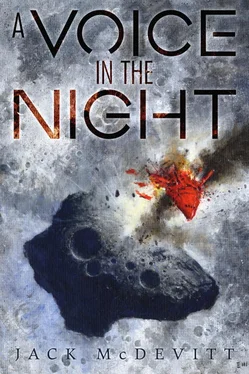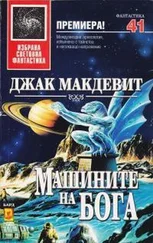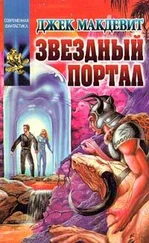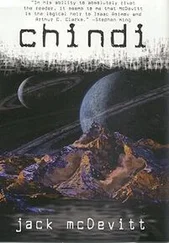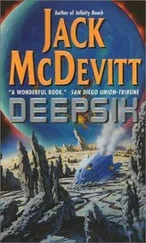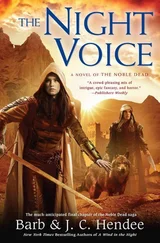Charlie grinned. “What else did he have to say?”
“Oh, the usual things. He attacked big business and worried about the general moral decline. He had all the right answers.” My shoulders began to ache. “For a while I thought I had him. The real Bryan…”
We ordered another round of rum and cokes, and I sat quietly thinking about the old Populist. Of all the great figures of the American experience, I think I admire him most: champion of lost causes, defender of things we wish had been true. “I am as certain,” Bryan said to me at one point, “that there is another life as I am that I live today.” And he was just a voice in a computer.
“Where did it go wrong?”
“This Bryan claims to have read The Origin of Species. Says he thinks Darwin may have hold of something after all.”
Charlie sighed. “Last month, you had an Oliver Wendell Holmes who thought that freeing the slaves might have been shortsighted. Before that, Teddy Roosevelt took a stand for gun control. Harold—.” He hesitated. “You’ve never asked my opinion on any of this, but I don’t think it can be done. You can’t put people on punch cards.”
“We don’t use punch cards any more, Charlie.”
“Doesn’t matter. You still can’t do it.” His skin was ruddy in the smoky light. Across the room, four or five guys with beers and potbellies were arguing about the Eagles.
Our drinks came, but I just stared at mine.
“For one thing,” he continued, “you can’t get enough data.”
“I don’t need much, Charlie. Just a few key pieces. The system extrapolates the rest. Personalities aren’t as complex as people like to think. At least not once you’ve got the pattern. Read Cumberland. Or Boltmaier. It’s like building a complete animal out of a shinbone.”
“Only a few pieces,” he said. “What was the source of your Lincoln data?”
Ah. Lincoln. It had taken almost a week to invalidate him. He’d talked a lot about powderkegs, the impossibility of leaving the mouth of the Mississippi in the hands of a foreign power—“Illinois and Minnesota would never stand for it”—, how he didn’t sleep much at night. How he had bad dreams. Stuff like that. Then I asked how he’d reacted to Chickamauga.
“I didn’t think much about it,” he’d said. “It happened about the time I got interested in horses.”
Horses.
“His papers mostly,” I said. “Some eye-witness accounts, journals, letters, contemporary newspapers. And Carl Sandburg, of course.”
“Of course.”
“Sandburg understood him as no one else did.”
Charlie peered at me over the rim of his glass. “And you wonder why your Lincoln is a halfwit. Sandburg deals in metaphors. And symbolism. Harold, all that stuff is inaccurate at best. Exaggerated. Overplayed. Most of it is biased one way or another. You think the real Lincoln can be found in old copies of The New York Times? Or in poetry?”
“What kind of source would you suggest?”
“Something accurate. A precise record of a man’s character and abilities. Something that can be expressed mathematically. Something beyond any possibility of misinterpretation.”
“There is no such record,” I said. “It’s not possible that there could be.”
Charlie smiled. “Not for Lincoln. Or Bryan. But how about a physicist? Or a mathematician? Somebody who works with numbers?”
“Einstein?”
“Why not?”
“I’d have to learn the physics. You ever try to figure out what this quantum mechanics is about?”
“Not really.” He finished his drink and looked toward the door. It was getting late. “There must be something else that blends precision with the psyche.”
“Damned if I can think of anything.”
The check arrived. We split it down the middle, dropped tips on the table, and got up. “Chess,” he said. “You play chess, don’t you?”
And that’s how it happened that, on a cold, snowswept evening a few weeks later, I held a conversation with Paul Morphy. Now if you know anything about old chessplayers, you’ll wonder why I chose Morphy, who’s best known for two things: he was easily the strongest player of his time (and those who know about such matters maintain that no better natural player ever lived), and he swore off the game at twenty-one. Bitter that the reigning champion, Britain’s Howard Staunton, successfully, and cravenly, avoided a title match, Paul retired to his native New Orleans in 1859, eventually to lead the existence of a recluse.
I was of course worried about the Morphy persona. Even if I got him right, I might have to worry about emotional problems. On the other hand, a casual glance at the other chess immortals suggests that a man who simply dropped from public view and who committed no documented irrationalities worse than refusing to discuss the game looked downright ordinary.
I instructed Paul’s persona that it was located at the scene of some of his most dazzling victories: the Café de la Regénce in Paris, during the early autumn of 1858. Morphy was at the time in the midst of a triumphant European tour, undertaken in pursuit of the elusive Staunton.
Bringing a persona on-line is a sobering event. I was resuscitating a citizen of another age. Eventually, it might become possible to argue military strategy with Charles XII, discuss life and death with Socrates, and talk theology with St. Augustine.
The potential benefits from reconstructing perfect computer simulations of historical personages was enormous, and I knew it could be done. But I wondered whether Charlie might be right, whether the reality of, say, Plato’s psyche was too deeply buried beneath the rubble of history to be recoverable.
But Bryan, I knew, would not have given up. So I put together a new Paul Morphy. It took awhile, but eventually I had him. He expressed Morphy’s opinions, described his difficult life, and asked whether he could join the Masters’ Club.
That’s the way it started. I was able to listen to the low hum of power as we talked about music, about Parisian cafés, and about French women. He was bred, I noticed, with moderately puritanical inclinations. He loved Verdi and the theater, and he remarked that first evening that he wanted to attend Racine’s Brittanicus during the weekend, if I could arrange it.
How real it all seemed! I feel now as if I actually sat among the flickering candles and the polished tabletops of the Regénce. Paul related conversations with Henry Bird and Adolf Anderssen, and admitted to being puzzled by Paul Cezanne’s early work. Don’t misunderstand: I never forgot what he—it—was. But the illusion was unsettling.
During the days that followed, he described baroque theaters, strolls along cobblestone streets, and garrulous patrons of art galleries. And, I thought, by now those theaters had been demolished, the streets replaced by boulevards, and the patrons sent to a happier world.
For the first time during the years I’d worked on the project, I acquired a genuine sense of looking into another century.
Beyond the philosophical considerations, I saw a chance to pick up some cash, and do a public relations coup while I was at it. “Paul,” I asked, “how would you like to play in the U.S. Open?”
“What’s that?” he asked. “Will Staunton be there?”
I hesitated. “No,” I said. “I don’t think so.”
Читать дальше
